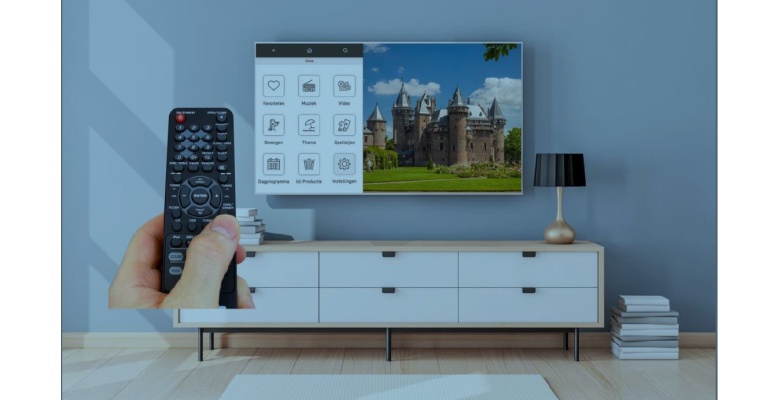Mr illi

There are currently about 290,000 people living with dementia in the Netherlands. Of these, 80,000 live in nursing or care homes. This means that more than 200,000 people with dementia live at home. According to Alzheimer Nederland, 79% of people with dementia live at home and are cared for by their close family and/or environment, known as informal carers. There are about 800,000 people in the Netherlands who care for someone with dementia.
Scientists agree that the number of people with dementia will only increase in the coming years. On top of that, dementia is currently not curable. The number of people with dementia will skyrocket, partly due to the ageing population in the future, to more than half a million by 2040. By 2050, the number of people with dementia is likely to peak at over 620,000 in the Netherlands.
Quality of live and autonomy
The new prototype Mr illi (a sequel to illi-tv) helps increase quality of life and autonomy for as many people with dementia as possible. It provides a place of rest, relaxation and recognition, but also invites activation. In addition, Mr illi relieves care professionals and informal carers. In this way, it ensures that people with dementia can continue to live (independently) at home for as long as possible, which also reduces care costs.
Digital tool
The Mr illi is an accessible television app aimed at people with dementia, giving users a responsible alternative to normal, yet often ‘busy’, television. When the Mr illi is turned on, it automatically starts up the user’s personal daily programme, consisting of videos, photos and music linked to his/her interests. Recalling memories works beneficial in depression, facilitating social contact, encouraging positive self-image, providing sensory stimulation and getting the brain working again. Even in advanced stages of memory loss, songs from the past and familiar imagery can loosen up a lot.
Using AI, Just In Time Adaptive Interventions are developed so that the resident is encouraged to eat, drink, take medication or go to bed at the right time, for example. This promotes the resident’s autonomy. You easily operate the Mr illi with your own remote control. Informal carers and care professionals can use the portal to remotely send messages, add reminders and keep an agenda for the elderly person with dementia.
In addition, there is currently no comparable app developed specifically for older people (with dementia). Because it is an app, it eliminates the need for hardware. This saves on maintenance and makes the product more scalable.
Research question
The central key question of this study is:
‘How can Mr illi contribute to improving the quality of life of people with dementia and their informal carers?’

